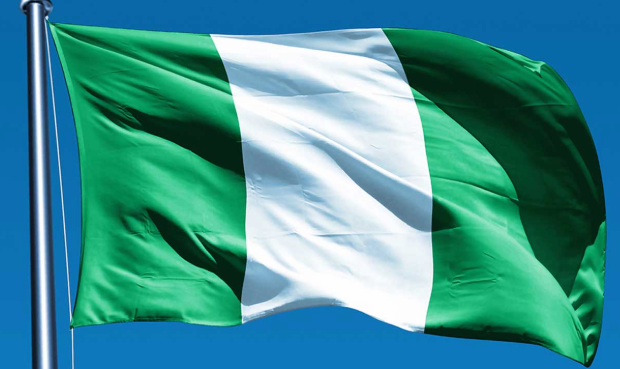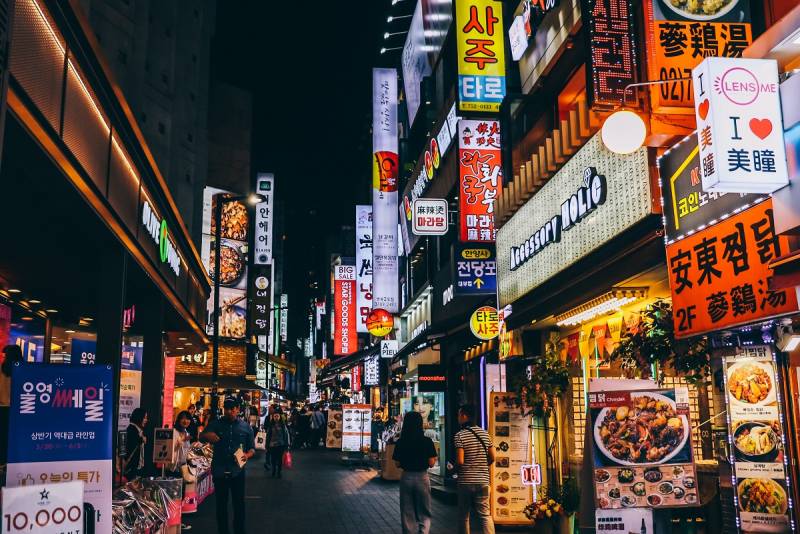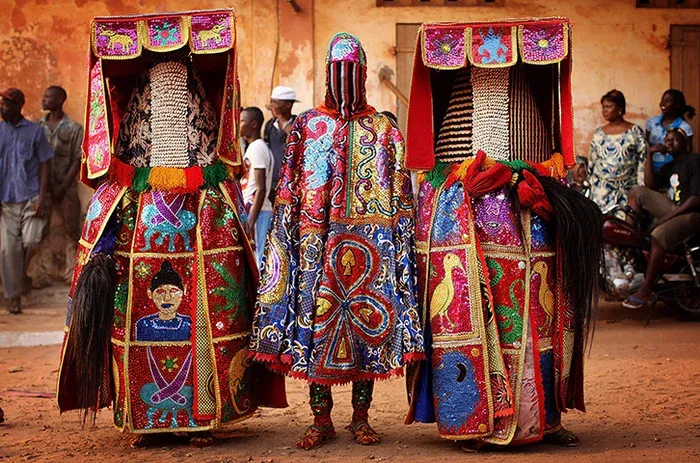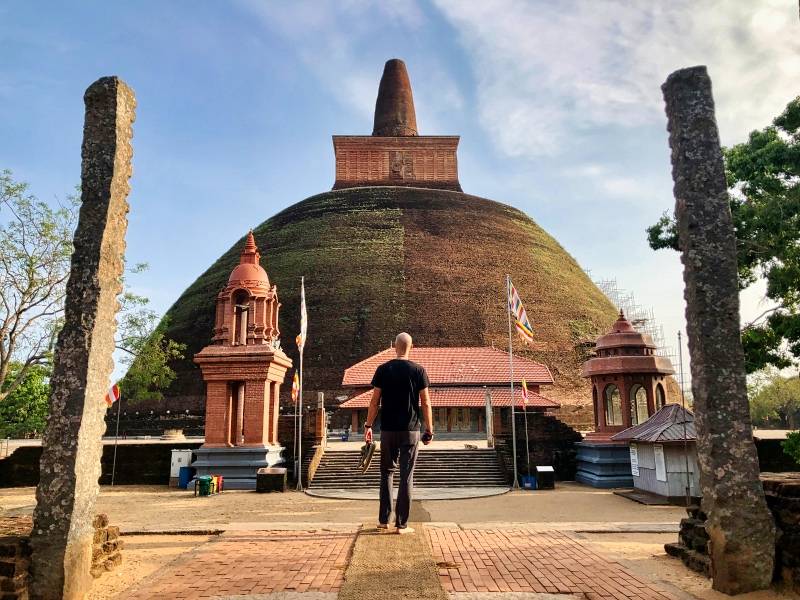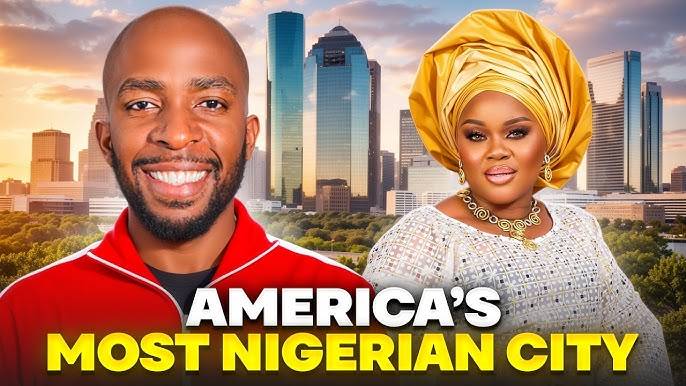ON THE COVER
Nigeria @ 61: Historical Trajectory Of Africa’s Most Populous Nation
The chronicle of Nigeria as the most populous country in Africa has been such that it falls in and out of an unsteady situation and comes out alive. Even with its mammoth prospect, years after gaining independence from its colonial masters, the country is still dealing with a foundational problem that has caused the country an enormous setback.
Despite its huge potential of being the most powerful country in Africa, with unlimited human resources and natural resources, the country is haunted by its past and seemingly dark history. Much of this dark history can be traced to the rift between Prince Kosoko and his uncle, Oba Akitoye, which led to the bombardment of Lagos in 1851. This rift was rooted in the knowledge that whoever controls the waters of Lagos controls an enormous influence on trade in West Africa. Ten years later, Lagos became a British Crown Colony through the annexation document that was signed by Oba Docemo (Oba of Lagos from 1853 to 1885). That created the structural foundation of Colonial Administration in Lagos, and what would later become Nigeria.
The British designed a system to have the country generate money to run itself, fund British overseas operations and also ensure constant remittance to the British Treasury; hence, the attribution of colonial states as the Commonwealth. As a colony of the British Empire, all its wealth belongs to the Crown.
At the time, Nigeria was the chicken that was laying the golden eggs. Indeed, in the past, Nigeria had played a major role in the remittance of human and material resources to the British British Empire as support during the 2nd World War.
The Amalgamation
In 1914, the Southern and Northern protectorate were joined to form a single colony of Nigeria, right in the middle of what would later be ‘Independence Square’ and also ‘Tinubu Square’ on Lagos Island. The Governor-General of Nigeria, Frederick Lugard, read the proclamation in the middle of the square to the people. Lagos Lawyer and Nationalist, Sir Kitoyi-Ajasa was present at the ceremony. After reading the document to the people, Lugard rode on his horse back to the State Government House in Marina and prepared his luggage to head back to the North for he had always hated the people and weather of the West, his disgust he didn’t hide in his diary.
Prime Minister of Nigeria Abubakar Tafawa Balewa (2nd right) and Princess Alexandra (middle). Photo BBC
The question of if there was any due process before the amalgamation was effected gets a No. It was clearly a solution to perfect a business enterprise for the British Crown. With this in mind, the journey for the creation of ‘Nigeria’ was set in full motion.
The early nationalists saw through the amalgamation deal and engaged the colonial government for the proper rights of the citizenry. More than anything, a series of riots and agitation became the order of the day as a better life and less tax were the primary concern. Before then, taxation was one of the lethal weapons that the colonial government used in making the life of the people unbearable. As such, a list of the outcomes of the use of this weaponry against the people included: The Aba Women Riots in 1929 ignited by Nwayereuwa, the Iva Mine Valley strike, and The Abeokuta Women Riot lead by Madam Funmilayo Ransome-Kuti. The Abeokuta Women Riot led to the abdication of the Egba Throne of Oba Ladapo Ademola.
A few of these nationalists paid the ultimate price for voicing out against the colonial government. For instance, Herbert Macaulay, who became a thorn in the government’s flesh, was imprisoned on the allegations of treason and sedition in June 1928 because of how he used his editorials in the popular Lagos Daily News as a constant tool of fighting the Colonial government. He was eventually sentenced to Broad Street prison for six months.
The series of agitations and conversations led to the first series of pre-independent constitutional talks and deliberations. However, the negotiations for an independent Nigeria became stronger from 1953. To this effect, trips were made to the UK to negotiate the need for a sovereign nation. In line with the trips to the UK, Madam Funmilayo Ransome-Kuti and Madam Tanimowo Ogunlesi would forever be in the books of history as the two women on the team for the negotiation of the country’s independence.
The 1953-1956 Independence talks highlighted several issues about the new nation. And nationalists, as well as traditional leaders, were on the front burner of the engaging talks that were about to usher in the birth of a new sovereign nation.
Nigerian Navy Sailors, Independence Day
In the middle of the talks, the Queen of England, HRM Elizabeth II visited Nigeria. Nicknamed the Royal Tour of 1956, it was a tour to the British Colony- a way of sending forth the colony (if much deliberation is given to it). The romp and pomp of the event lasted 20 days (28th January 1956- 16th February 1956).
After this assessment, it agreed to the need to give the country its independence. It is noteworthy to add that the basis of the unity of the regions was based on commerce and not as to the separate units coming together through a natural relationship.
The troika of Obafemi Awolowo, Nnamdi Azikiwe and Ahmadu Bello were the main actors that negotiated the country’s independence, each representing major regions of the country, forging a bond that would give birth to the formation called Nigeria.
On the 19th of June 1953, right after Chief Anthony Enahoro passed the bill for self-government at the age of 33, the outcome of the bill and the resignation of all Federal Ministers caused a crisis such that the Secretary of state for colonies, Oliver Lyttelton, and the then Governor-General of Nigeria had to invite Sardauna, Nnamdi Azikiwe and Chief Obafemi Awolowo to a meeting to make amends of the volatile situation.
The meeting ended around 10:11 pm and as they were coming out of the meeting, the Governor-General and the nationalists took an iconic image, and were dubbed by the Daily Times of 20th June 1953 as “The Big Three”. This photo was instrumental to how the citizenry perceived the three as the Founding Fathers of modern Nigeria.
Awolowo
Having escaped poverty, fate had a role to play in Chief Obafemi Awolowo’s life. Fame smiled on Awolowo on the 7th of January 1937 when, as the organising secretary of the Motor Transport Union (now known as NURTW), he organised a motor transport strike to protest the increase in tariff on the country’s transportation systems. The protest lasted for 6 days and held the country to a standstill, especially in Lagos, which was the nation’s capital until the demands of the Union were met. The name “Awolowo” became a brand associated with social activism, and that act catapulted him into the forefront until he came under the radar of the Colonial government.
Nnamdi Azikiwe
Nnamdi Azikiwe, on the other hand, even had a more tough life. As a teenager who loved sporting activities, he experienced racism and discrimination when he was selected to represent Nigeria at the 1934 British Empire Games in England. The British organisers dropped him because he chose Nnamdi over his Christian name “Benjamin”.
As a student in the United States when he was studying, the young Nnamdi was once again confronted with segregation and poverty. He could not get a student loan to pay his school fees and decided to commit suicide. On the appointed day, he went to a railway track and lay on the track hoping to be crushed by an oncoming train, which was a few metres away from him, when he was pulled off by a Reverend father, who in turn, paid his tuition fees.
Ahmadu Bello
Anointed as the Sardauna (Crown Prince) of Sokoto, Sir Ahmadu Bello was born into a leading Islamic family. Passionate about the socio-cultural development of Northern Nigeria, he began his political career at the age of 23, passionate about the socio-cultural development of Northern Nigeria. Among the “Big Three”, he was the only one that was brutally murdered in his home during the 1966 coup.
October 1st 1960
On the 1st of October 1960, at midnight, Nigeria became a nation and the Union Jack was lowered, signalling the end of an era.
As the Union Jack Flag was lowered, the Nigerian Flag, designed by 23-year-old Michael Akinwunmi Taiwo, was hoisted by Salaudeen Akano, who would later become a commodore in the Nigerian Navy. He earned the nickname “Union Jack” after this act.
Salaudeen Akano died in 2021. The documents for the declaration of independence were officially signed at the ballroom of the Federal Palace Hotel on Victoria Island; right behind the hotel was where the British Royal ships were docked. The Independence ceremony was officiated by the cousin of the Queen of England, Princess Alexandra, who represented her.
Right after Independence, the realities of the structure of the new governance and a state of different tribes and setups began to plague the nation.
In 1962, there was a violent protest in the Western Region. The crisis started as a result of the rivalry between Chief Ladoke Akintola and Chief Obafemi Awolowo. This later gave birth to the Infamous “Operation Wetie” which was coined after the brutal fashion political oppositions burn their opponents. The crisis also caused some rippling effects in different parts of the country. As such, the Federal Government stepped in and declared a state of emergency in the Western Region.
The Wetie crisis and a long string of corruption and other abuse of power gave birth to January 15, 1966 coup, which was an indirect signal of “We have had enough” by some young officers in the Nigerian army.The coup was led by 29-year-old Chukwuma Kaduna Nzeogwu and Emmanuel Ifeajuna. Over 22 people were killed during the coup, including Prime Minister Abubakar Tafawa Balewa, Premier Ahmadu Bello, Chief Samuel Akintola, and the Minister of Finance, the flamboyant Festus Okotie-Eboh.
Coups
Just six years after its independence, the country witnessed its first assault. Six months after the January 15th coup, a counter-coup was launched. “The July Rematch” as it is infamously tagged, was led by 28-year-old Lt. Colonel Murtala Muhammed. The coup began as a mutiny at roughly midnight on July 28, 1966, and was a reaction to the killings of Northern politicians and officers by some soldiers on January 15, 1966.
These clusters of events would later plunge the nation into a civil war that lasted 2 years and 6 months. The war broke out in May 1967, leaving 100,000 military casualties and over three million people dead including Biafran civilians who died of starvation after the Federal Government blocked the supply of food to the Eastern part of the country.
The country survived the civil war, but it had done deep tissue damage to the anatomy of the young nation that just had its independence seven years earlier. General Yakubu Gowon, who was the President during the war, launched a Unity project to soften the traumatic effect the war had caused. The slogan “Go on with One Nigeria” was used, almost an acronym of his war. For there had been several coups, assassinations, internal conflicts, corrupt practices, the infamous Decree 4 of 1984 under the Buhari/Idiagbon regime, and diplomatic blunders such as the Umaru Dikko Kidnapping Saga that almost ruined Nigeria’s relationship with the UK and Israel.
Between 1976- 1985, the country witnessed a series of events that further damaged its DNA and increased resilience to survive at all costs; Several coups, assassinations, internal conflicts, corrupt practices, the infamous Decree 4 of 1984 under the Buhari/Idiagbon regime, and diplomatic blunders such as the Umaru Dikko Kidnapping Saga that almost ruined Nigeria’s relationship with the UK and Israel.
In 1985, General Ibrahim Badamasi Babangida (IBB) became the Military President of Nigeria after he seized power in a palace coup against Muhammad Buhari. The coup was coordinated by some of his allies, which included Sani Abacha and IBB’s best friend Mamman Vasta, who was later executed on March 5th of 1986 after he was convicted of treason related to an abortive coup.
IBB’s regime was plagued with a series of crises; from religious breakouts to the assassination of Dele Giwa, the 1991 Gideon Okar coup, and the infamous annulment of the June 12, 1993 presidential Election which is described as the fairest election held in the country’s history.
The annulment of the election gave rise to a series of violent protests in July 1993 in the South-West region of the country and other parts of the country. For the Igbos, it was another reminder of what happened during the Civil War, giving rise to a panic that saw them flee Lagos and the North to their homeland.
Because of these, Babangida couldn’t hold on to power, and an interim government was formed, led by Ernest Shonekan and Sani Abacha, who was Babangida’s close ally and also the Minister of Defence. Sani Abacha would later topple the Interim government of Ernest Shonekan in a Palace coup on November 17th, 1993.
His ascension to power ushered Nigeria into a dark era. Abiola was arrested and charged with treason in July 1994 and the need to return or form a democratic government started with different civil rights groups clamouring for Abiola’s release and a return to a democratic government.
The period saw the birth of the NADECO (National Democratic Coalition) Group. The group was formed on the 15th of May 1994 to ask Sani Abacha to relinquish power to M.K.O Abiola, the winner of the June 12, 1993 election.
However, a clampdown on civil rights groups and individuals began. Not forgetting the assassinations of Kudirat Abiola, Pa Alfred Rewane, the extra-judicial execution of Ken-Saro-Wiwa, a death bounty was placed on Professor Wole Soyinka, who was charged with treason in absentia.
The Abacha regime suffered a coup in 1997, lead by General Diya and a group of top-ranking military officers. Over 25 civilians were arrested after the coup failed.
Although the Sani Abacha regime saw an increase in the country’s foreign exchange reserve from $494 Million in 1993 to 9.6 Billion by mid-1997 and a reduction of the country’s external debt from $36 Billion to 27 Billion in 1997, the era is said to have witnessed the worst case of human rights abuse, extra-judicial killings and executions.
Abacha died under mysterious circumstances on the 8th of July, 1998. M.K.O Abiola also died almost a month after on the 7th of July, 1998.
General Abdulsalami Abubakar took over the reins as head of state on the 9th of June. 1998. He would later hand over to Olusegun Obasanjo on the 29th of May 1999, ushering the country into the 4th Republic.
Despite its trials, Nigeria has stayed strong and determined. Veno Marioghae in her 1985 hit song “Nigeria Go Survive” talks about the doggedness and the fighting spirit of the country to survive despite all odds.
Now at 61, Nigeria is going through a tougher period. From the Boko Haram menace to incessant kidnappings, killings and banditry happening all over the country, its very core of stability and democracy is being threatened.
The 4th-5th line of the country’s National Anthem says, “The labour of our hero’s past shall never be in vain”.
If there is something worth fighting for, it is that spirit of a United Nigeria, even though damaged, stressed and shattered. There is still light at the end of the tunnel.
God Bless Nigeria. Happy Birthday!
